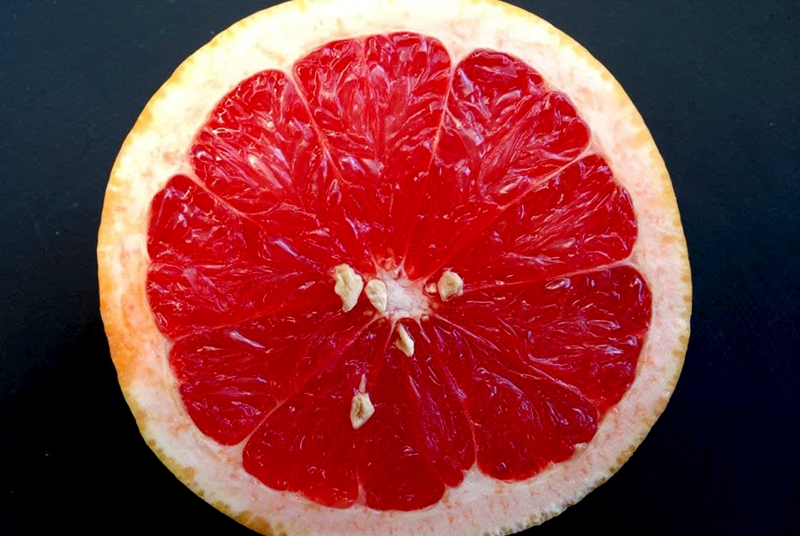You are viewing 1 of your 1 free articles. For unlimited access take a risk-free trial
Nutrition and immunity: Bug off flu!

Winter 2017/18 was a bad one for influenza. The predominant strain of flu was caused by the H3N2 strain of the 'influenza A' type of virus (type A viruses usually lead to more severe symptoms), which in the US, led to a record number of paediatric fatalities and the highest ever number of hospital admissions. For the 208/19 winter, most experts believe that H1N1 type A strains will be dominant. This is good news for the elderly, who tend to suffer disproportionately from health complications caused by H3N2 full viruses. But for those of us who are less advanced in years, a dose of H1N1 influenza can leave even the healthiest athlete bedridden for 10 days, which means that strategies to enhance your own immunity are more important than ever.
Nutrition and immunity
It’s long been known that top-quality nutrition can enhance immune function, and help boost immunity. For example, a growing body of research shows that consuming higher levels of vitamin D helps reduces the risk of upper respiratory tract infections (URTIs - sore throats, coughs, colds, flu etc), and reduces the length and severity of infections when they do occur. Less well known however is the research showing that improving gut health (with the use of probiotics from foods and supplements) can also enhance immunity, and reduce the risk of URTIs. However, recent research suggests that one type of probiotic could offer protection against the influenza A virus.The research
In this study, researchers were looking for probiotics that might prove effective in helping to protect against a wide range of influenza A types of virus [Sci Rep. 2017 Dec 12;7(1):17360]. They had already noted that lactic acid bacteria (commonly used as probiotics to improve digestive health), seemed to also offer protection against different sub-types of influenza A virus, leading to reduced weight loss after a virus infection and lower amounts of virus replication in the lungs. They also noted that some lactic acid bacteria strains have been shown to provide partial protection against bacterial infectious diseases, such as Streptococcus pneumoniae, as well as cold and influenza viruses.To take this one step further, the researchers investigated the antiviral protective effects of a heat-killed strain of lactic acid bacteria (Lactobacillus casei DK128), a promising probiotic isolated from fermented vegetables, on influenza viruses. To do this, the researchers pretreated mice intra-nasally with heat-killed Lactobacillus casei DK128. After this, the mice were then infected with a lethal dose of influenza A virus, subtype H3N2 or H1N1. These mice were compared with other who had received no probiotic.
What they found
The mice pre-treated with Lactobacillus casei DK128 showed a variety of immune responses that are correlated with protection against influenza virus, including an increase in the alveolar macrophage cells in the lungs and airways, early induction of virusspecific antibodies and reduced levels of pro-inflammatory cytokines and innate immune cells (basically, a far superior immune response). More importantly, the Lactobacillus casei DK128 bacteria protected the mice against weight loss and mortality; the mice pre-treated with the probiotic had a 100 percent survival rate and prevention of weight loss. This strain of lactic acid bacteria also equipped mice with cross-protective immunity against a secondary lethal infection with influenza virus. Even more startling was that the protection afforded against influenza virus infection was not specific to a particular strain of influenza!Implications for athletes
The first thing to say is that this was an animal experiment and benefits shown in animal experiments don’t always translate directly across into humans. Having said that, this study fits well with evidence that probiotic use seems to confer immune benefits – both in humans and in animals. That may be because the biochemistry of the gut seems to affect a number of other physiological systems in the body, including hormone balance, brain function, and yes – immunity. In a nutshell, this is an exciting health-related area of nutrition that is worth watching!PRACTICAL SUGGESTIONS
- *Consider taking a probiotic supplement during the winter months when the risk of URTIs is high.
- *Stick to probiotic bacteria strains that have proven to be effective in studies such as Lactobacillus fermentum and Lactobacillus casei.
- *Probiotics in liquid form are more likely to be effective than dried forms such as capsules; take any probiotic on an empty tummy and at least 15 minutes before food. A good time is soon after rising in the morning, but before breakfast.
- *Bear in mind that beneficial changes in gut flora from probiotics take time to accrue, which means that probiotics are not a ‘quick fix’ for boosting immunity.
- *Probiotics are definitely recommended following a course of antibiotic treatment.
- *Don’t forget the hygiene basics. In particular, washing your hands frequently helps prevent the transfer of the virus from your hands to eyes, mouth and nose, where it can infect.
Newsletter Sign Up
Testimonials
Dr. Alexandra Fandetti-Robin, Back & Body Chiropractic
Elspeth Cowell MSCh DpodM SRCh HCPC reg
William Hunter, Nuffield Health
Newsletter Sign Up
Coaches Testimonials
Dr. Alexandra Fandetti-Robin, Back & Body Chiropractic
Elspeth Cowell MSCh DpodM SRCh HCPC reg
William Hunter, Nuffield Health
Keep up with latest sports science research and apply it to maximize performance
Today you have the chance to join a group of athletes, and sports coaches/trainers who all have something special in common...
They use the latest research to improve performance for themselves and their clients - both athletes and sports teams - with help from global specialists in the fields of sports science, sports medicine and sports psychology.
They do this by reading Sports Performance Bulletin, an easy-to-digest but serious-minded journal dedicated to high performance sports. SPB offers a wealth of information and insight into the latest research, in an easily-accessible and understood format, along with a wealth of practical recommendations.
*includes 3 coaching manuals
Get Inspired
All the latest techniques and approaches
Sports Performance Bulletin helps dedicated endurance athletes improve their performance. Sense-checking the latest sports science research, and sourcing evidence and case studies to support findings, Sports Performance Bulletin turns proven insights into easily digestible practical advice. Supporting athletes, coaches and professionals who wish to ensure their guidance and programmes are kept right up to date and based on credible science.












